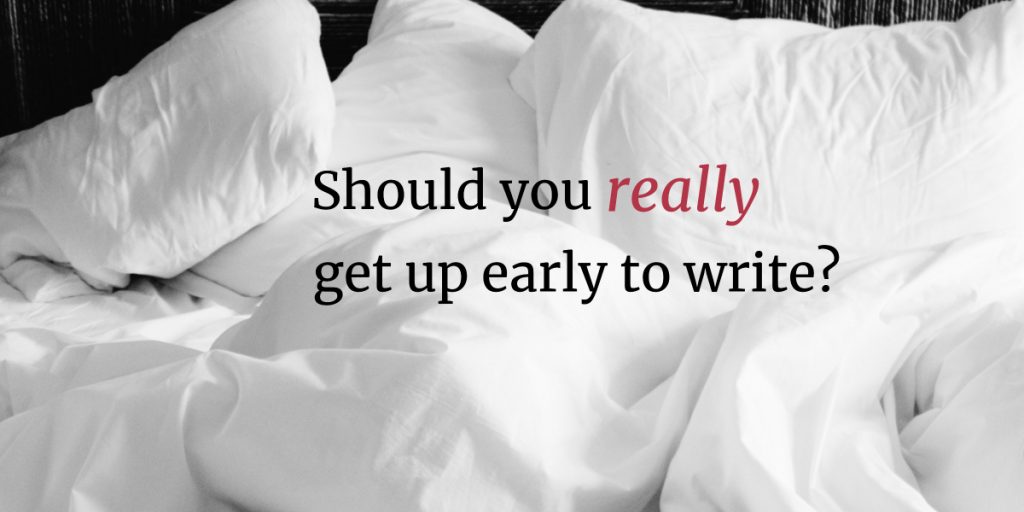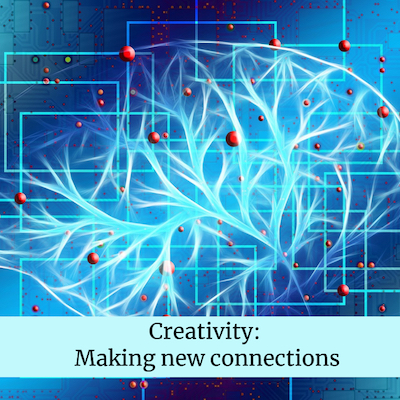 I’m a little tired of reading about successful people who rise and write for hours before daybreak. How about you?
I’m a little tired of reading about successful people who rise and write for hours before daybreak. How about you?
I’m filled with admiration for their work ethic and discipline. But it’s not my process, nor is it necessarily yours. And for reasons grounded in neuroscience, waking early to write might work against you.
Writing first thing in the morning has many benefits. By doing this work early, you write while you’re fresh. And, you get the work done before the urgencies of the day arise.
The relevant question is this: how early do you start?
Perhaps your only uninterrupted time to write happens before the sun comes up. Fair enough. But, crawling out of bed in the dark may have unintended consequences on your creativity.
A Cognitive Approach to Creative Thought
What makes an idea creative? It’s useful or beautiful, but also unexpected.
Creative insights don’t arise from the same linear thought processes that everyone else is using. Psychologists have a name for this non-linear idea-generation: divergent thinking.
Recently, neuroscientists have examine brain patterns during divergent thinking and found a high degree of connections being forged between three distinct regions of the brain. (See a description of this research on the Psychology Today site: Your Brain on Creativity.)

The brain is an enormously complex network, and our understanding of it is still emerging. But the research makes sense: creative insight often results from combining existing but disconnected knowledge, memories, and even dreams.
Let’s agree on a working definition of creative thought as:
Forming connections between different regions of the brain to generate ideas that others recognize as valuable and unexpected
The brain is constantly changing. Although we cannot consciously control all of its operations, we can affect it with our behavior. One way to influence creativity is through sleep.
Sleep’s role in creativity
During the Rapid Eye Movement (or REM) phase of sleep, guess what our brains do? That’s right—they make connections between experiences and memories.
In his book Why We Sleep, Matthew Walker suggests that during “Sleep cycle by sleep cycle, REM sleep helps construct vast associative networks of information within the brain.” REM sleep creates new mental connections that can fuel creative thought during waking hours.
This explains why you hear stories of writers, poets, and others receiving ideas for their masterpieces directly from dreams, or why, on rising in the morning, you find the creative output flows easily.
Here’s the sticking point for writers: Most of your REM sleep happens in the second part of the night, and particularly the early morning hours.
If we force ourselves out of bed early, before the natural conclusion of the sleep cycle, we reduce amount of REM we achieve. By doing so, we limit this connection grooming and imperil the creative output of our minds.

The well-rested writer
What should you do with this information?
Get enough sleep: If you want to be creative and productive, don’t skimp on sleep to lengthen your writing time. (Sleep offers many other critical health benefits as well; creativity is just one of many reasons to protect your sleep.)
If you enjoy rising early to write, go to bed early enough so you have a full sleep cycle. Most of us adult homo sapiens need over seven hours a night. (If you don’t agree, I’ll refer you again to Matthew Walker’s book, Why We Sleep.)
Use REM sleep strategically. Set yourself up to welcome the creative insights that come from sleep. Many writers keep a notebook by their bedside to catch ideas that occur to them during the night. Leave an overnight break in your writing cycle to give yourself time to “sleep on” the project.
Stop feeling guilty. If you read those articles about the 5am writers, you might believe that to be a “real” writer you need to cheat your sleep.
Forget that worry. We each have our own internal processes, seasons of life, and reasons for writing. No one can say your process is right or wrong.
If you haven’t gotten at least seven hours of time to snooze, you have my permission to roll back over in bed with the warm and reassuring feeling that you’re working on your creativity.